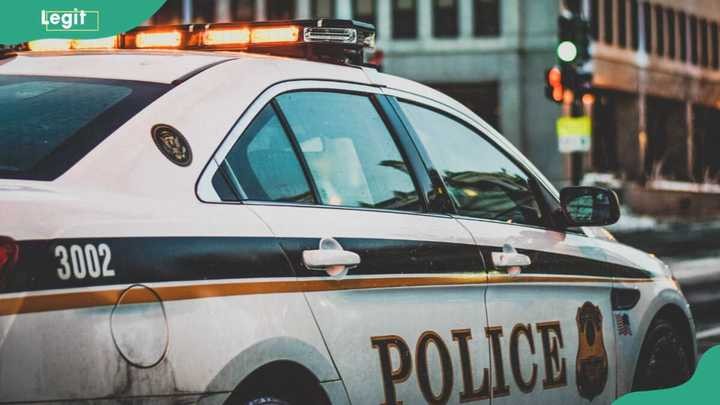The police force, a cornerstone of modern society, has its roots stretching back to the early 19th century with the establishment of organized law enforcement in the UK. Over time, various slang terms have emerged to refer to police officers, and one particularly intriguing example is “12.” So, Why Do People Call Cops 12? This term, especially prevalent in areas like Atlanta, Georgia, and within hip-hop culture, carries a story worth exploring.
Decoding “12”: What Does It Mean?
In street slang, particularly in Atlanta and surrounding Southern US regions, “12” is a common term for police officers. The term’s usage varies; it can be employed negatively, as an insult or dismissal, or neutrally, simply as an identifier. Understanding the context is key to interpreting the speaker’s intent when using “12.”
Exploring the Origins: Why “12” for Police?
The exact genesis of “12” as a slang term for police remains somewhat shrouded in mystery, with several compelling theories attempting to explain its rise to popularity.
The 10-Code Connection: Radio Communication
One prominent theory links “12” to the police 10-codes, a system designed for clear and concise radio communication among law enforcement. Specifically, the code “10-12” translates to “visitors present” or “stand by.” While “10-12” itself doesn’t directly relate to police presence in the way “12” slang does, the numerical element might have been extracted and simplified.
During the 1960s and 70s, police radio codes were more widely known, potentially influencing the adoption of “12.” The idea is that “12” became a shorthand, a quick way to signal the presence of law enforcement, evolving from or inspired by the “10-12” code. This theory suggests “12” initially served as a discreet warning.
ACAB and Numerical Substitution
Another, more controversial theory connects “12” to the acronym ACAB, which stands for “All Cops Are Bastards.” In this interpretation, numbers are substituted for letters: 1 for A, 3 for C, and 2 for B, resulting in “1312.” This numerical code, 1312, is then further shortened to simply “12.”
This theory suggests “12” carries a more antagonistic connotation, originating from anti-police sentiment. While ACAB and 1312 are explicitly derogatory, the shortened “12” might be used with varying degrees of negative intent, depending on the speaker and context.
The “Adam-12” TV Show Influence
A more pop-culture-centric theory points to the popular police television show “Adam-12.” Premiering in 1968 and running until 1975, “Adam-12” followed two Los Angeles police officers patrolling the streets in their patrol unit, designated “1-Adam-12.” The show was widely watched and contributed to the popularization of police procedures and terminology.
Just as “5-0” became a slang term referencing the “Hawaii Five-O” police show, “12” could have emerged from the widespread recognition of “Adam-12.” This theory suggests a less negative origin, with “12” simply becoming a recognizable and catchy shorthand associated with police due to the show’s cultural impact.
Why is “12” Used to Refer to Cops?
Regardless of its precise origin, “12” serves several purposes when used to refer to police:
- Warning Signal: Primarily, “12” functions as a discreet warning about the presence of law enforcement. Using slang allows individuals to communicate about police presence without directly alerting officers who might be nearby. This can be crucial in situations where individuals are engaged in activities they wish to keep hidden from the police.
- Cultural Identity: The term has been embraced and popularized within certain subcultures, particularly hip-hop. Its use in music, movies, and popular culture solidifies “12” as a recognizable and widely understood moniker for police. For example, the use of “12” in the 1995 film Friday exemplifies its integration into popular vernacular.
- Informal and Familiar Term: Slang terms often arise as informal and familiar ways to refer to established institutions or figures. “12” provides an alternative to more formal terms like “police officer,” creating a sense of in-group language and shared understanding.
When Did “12” Become Police Slang?
The use of “12” to denote law enforcement began gaining traction in the late 1960s and early 1970s. This timeframe aligns with the popularity of both the “10-12” radio code usage and the “Adam-12” television show premiere. From its emergence, the term rapidly spread, embedding itself in popular culture and becoming a widely recognized slang term for police across various communities.
Frequently Asked Questions about Police Slang “12”
- What is the origin of the word “police”? The term “police” originates from the Greek word “politeia,” meaning “citizenship” or “government,” which evolved through Latin and French to its modern English form.
- Where did the concept of a professional police force begin? The concept of a professional, organized police force originated in the United Kingdom in the early 19th century.
- What was the name of the first modern police force? The Metropolitan Police, established in London in 1829, is considered the first modern police force.
- Is calling police “12” disrespectful? Context is crucial. While “12” can be used disrespectfully, particularly in association with ACAB, in many contexts, it functions as a neutral slang term, similar to other informal terms for police like “cops.” The intent behind its usage dictates whether it is disrespectful.
- When did people start calling police “12”? The late 1960s and early 1970s mark the period when “12” began to emerge and spread as a slang term for police.
In Conclusion: The Enduring Mystery of “12”
Why do people call cops 12? The answer remains multifaceted, with several compelling theories vying for the most accurate explanation. Whether stemming from police radio codes, anti-police sentiment, or popular television, “12” has become an entrenched part of the vernacular when referring to law enforcement. Its primary function as a warning and its adoption within popular culture have cemented its place in contemporary slang. While the definitive origin may remain debated, the term’s meaning and usage are widely understood, highlighting the dynamic evolution of language and slang in society.
